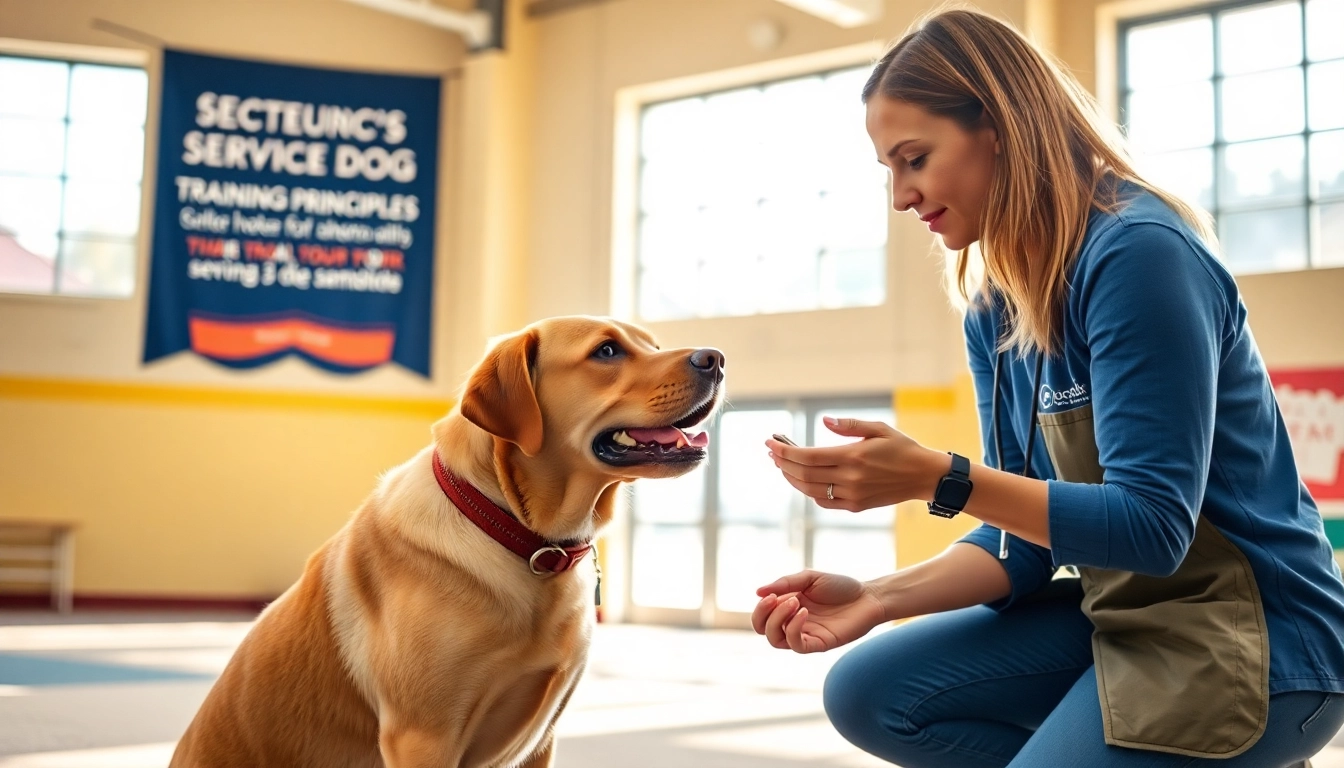Understanding Service Dogs
What is a Service Dog?
A service dog is a highly trained canine that provides assistance to individuals with disabilities. These dogs are specifically trained to perform tasks that mitigate their handler’s disability, enabling them to lead more independent lives. Unlike emotional support animals or therapy dogs, service dogs are recognized under the Americans with Disabilities Act (ADA), which grants them the right to accompany their handlers in public spaces, including restaurants, stores, and even airplanes.
Types of Service Dogs
Service dogs can be categorized based on the type of assistance they provide. Some common types include:
- Guide Dogs: Assist individuals who are visually impaired or blind.
- Hearing Dogs: Alert individuals who are hard of hearing to important sounds, such as alarms or doorbells.
- Mobility Assistance Dogs: Help individuals with physical disabilities by retrieving items, opening doors, or providing balance support.
- Medical Alert Dogs: Trained to alert their handlers to medical emergencies, such as low blood sugar or seizures.
- Psycho-Social Support Dogs: Aid individuals with psychiatric or psychological conditions, such as PTSD or severe anxiety, by providing comfort and security.
Legal Considerations for Service Dogs
Understanding the legal framework surrounding service dogs is essential for both handlers and businesses. In many countries, including the United States, the ADA defines service dogs and outlines their legal rights. This law prohibits discrimination based on disability and allows service dogs to accompany their handlers in all public areas. Businesses should be aware that they cannot deny access to a service dog unless the animal poses a direct threat to others or is not housebroken.
Why Buy a Service Dog?
Benefits of Owning a Service Dog
The companionship and support provided by a service dog can significantly enhance the quality of life for individuals with disabilities. Some benefits of owning a service dog include:
- Increased Independence: Service dogs empower their handlers by assisting with daily tasks, leading to greater autonomy.
- Emotional Support: The presence of a service dog can alleviate feelings of loneliness and anxiety, providing comfort in challenging times.
- Enhanced Safety: Service dogs can be trained to alert their handlers to potential dangers, ensuring a safer environment.
- Social Interaction: The presence of a service dog can facilitate conversations and interactions, helping handlers engage with their communities.
Assessing Your Needs for a Service Dog
Before purchasing a service dog, it is crucial to assess your personal needs. Consider factors such as your lifestyle, specific disabilities, and the tasks you need assistance with. Consultation with healthcare professionals or service dog organizations can greatly assist in determining if a service dog is the right option for you and what type would best suit your requirements.
How a Service Dog Can Enhance Your Life
Service dogs are not just pets; they are working partners. They can help individuals overcome daily challenges related to their disabilities, facilitating a more fulfilling life overall. For example, a service dog can help someone with mobility impairments navigate daily tasks at home and in public, while others may find that their service dogs provide unmatched emotional stability.
Choosing the Right Service Dog
Evaluating Breeds Suitable for Service Work
Certain dog breeds are more inclined to succeed as service animals due to their temperament, intelligence, and size. Common breeds include:
- Golden Retrievers: Known for their friendly demeanor and high trainability.
- Labrador Retrievers: Their intelligence and eagerness to please make them excellent service dog candidates.
- German Shepherds: Strong and protective, making them great for mobility assistance and medical alert tasks.
- Poodles: Highly intelligent and hypoallergenic, they are a good choice for individuals with allergies.
Factors to Consider When Selecting a Dog
When selecting a service dog, consider factors such as:
- Temperament: Look for a dog that displays calmness, confidence, and sociability in various environments.
- Training History: Ensure the dog has received proper training and has the necessary skills to assist you.
- Health and Age: Opt for a dog that is in good health and has a desirable age range for a long working life.
- Personal Compatibility: The bond between you and your dog is crucial. Spend time with the dog to assess compatibility.
Where to Find Service Dogs for Sale
When looking to buy a service dog, consider reputable sources such as registered service dog organizations or trainers who specialize in this area. Avoid purchasing from unverified sources to ensure you get a well-trained and healthy dog. Also, consider looking into shelters or adoption programs that may have dogs suitable for service work.
The Process to Buy a Service Dog
Steps to Secure a Service Dog
The journey to finding the right service dog involves several steps:
- Research: Gather information about different service dog organizations and the types of service dogs they provide.
- Application: Fill out an application with the organization you choose. This typically includes details about your disability and your needs.
- Interview: Some organizations may require an interview to assess your requirements and ensure a good match.
- Waiting Period: Be prepared for a waiting period as the organization matches you with a suitable dog.
- Training: Once selected, you may need to undergo training with your new service dog to bond and learn how to work together effectively.
What to Expect During the Training Phase
The training phase is crucial in establishing a strong partnership between you and your service dog. In this phase, you can expect:
- Handler Training: You will learn how to command, care for, and integrate your dog into daily life.
- Task Training: The dog will receive specialized training tailored to your unique needs and circumstances.
- Socialization: Exposure to various environments will help your dog adapt to public spaces and reduce anxiety.
Costs and Financial Assistance Options
The costs associated with obtaining a service dog can vary significantly, often ranging from a few thousand dollars to over $20,000, depending on the training and organization. However, many organizations offer financial assistance, fundraising options, and scholarships to help you afford the process. Investigating local resources and charities can also be beneficial in managing expenses.
Post-Purchase Considerations
Training and Socialization for Service Dogs
After acquiring your service dog, ongoing training and socialization are essential. Regular training sessions will reinforce the commands and tasks the dog has learned while socialization helps ensure that the dog is comfortable in various public settings. Continual engagement in training helps maintain the dog’s working attitude and focus.
Ongoing Care and Health Management
Your service dog’s health is crucial for their performance. Routine veterinary check-ups, vaccinations, and preventative treatments are essential in providing quality care. A well-balanced diet and regular exercise will keep your dog healthy and active, directly impacting their ability to assist you effectively.
Building a Bond with Your Service Dog
Establishing a strong bond with your service dog is invaluable. Spend quality time together, engage in play, and involve them in your daily activities. Building trust and companionship will not only enhance your life but also improve the dog’s performance and responsiveness.



